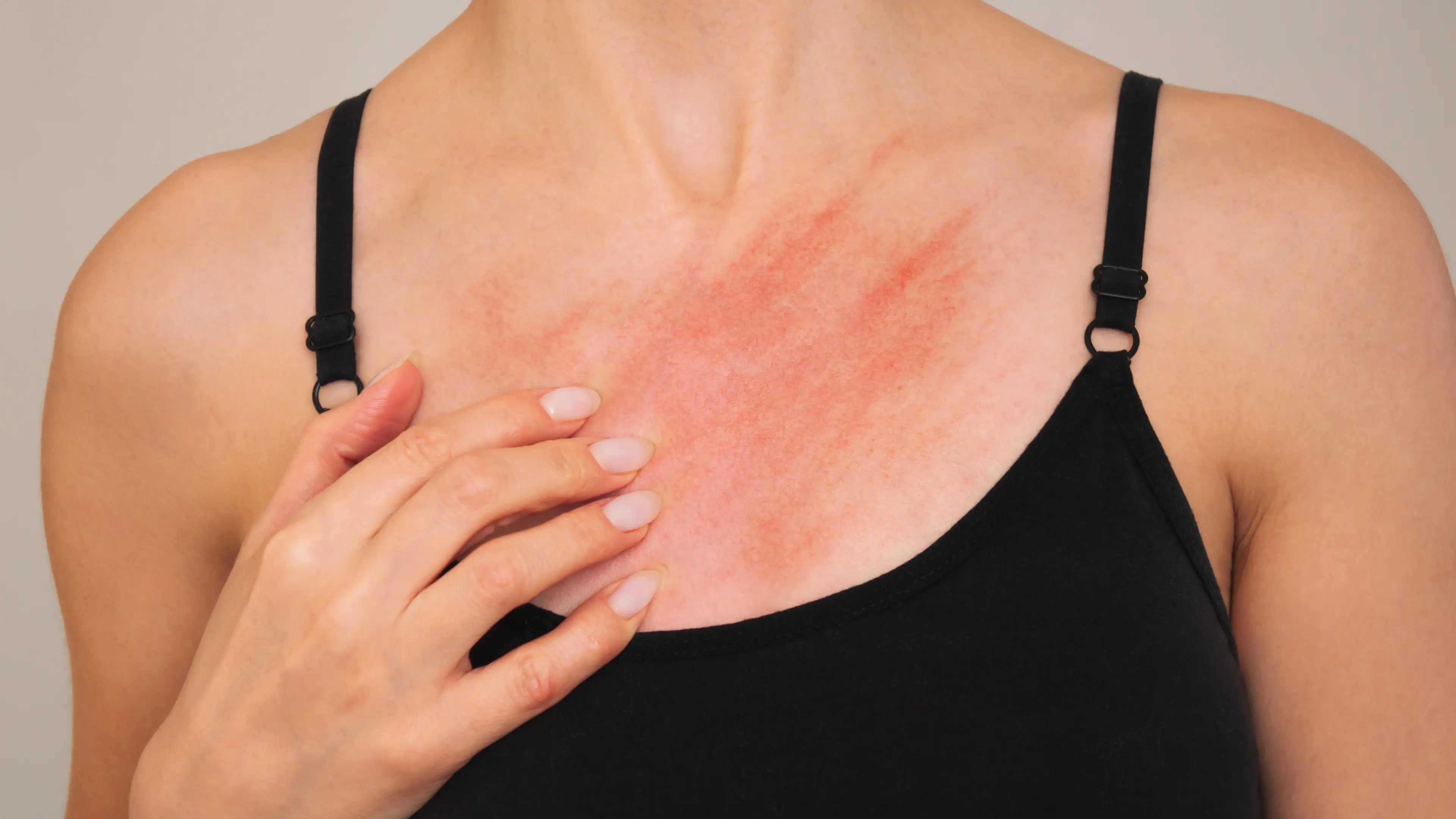
While, for the most part, boobs are great - it's clear they come with a fair few hang-ups.
For starters, there's the sheer discomfort of ill-fitting bras, large-chest-induced back pain and don't even get me started on how tender they feel when you're on your period.
Many people, however, have started reporting symptoms of 'itchiness' in the chesticle region, with the term 'itchy boobs' seeing a 14x higher search rate from July to August of this year, as per data supplied by Bupa UK insurance.
Additionally, 'one itchy nipple' searches tripled while 'itching below breast' searches doubled.
Advert
So, to answer all your questions on the health query ahead of Breast Cancer Awareness Month in October, Dr Tim Woodman, Medical Director for Cancer Services, Bupa UK Insurance, has shared his expertise.
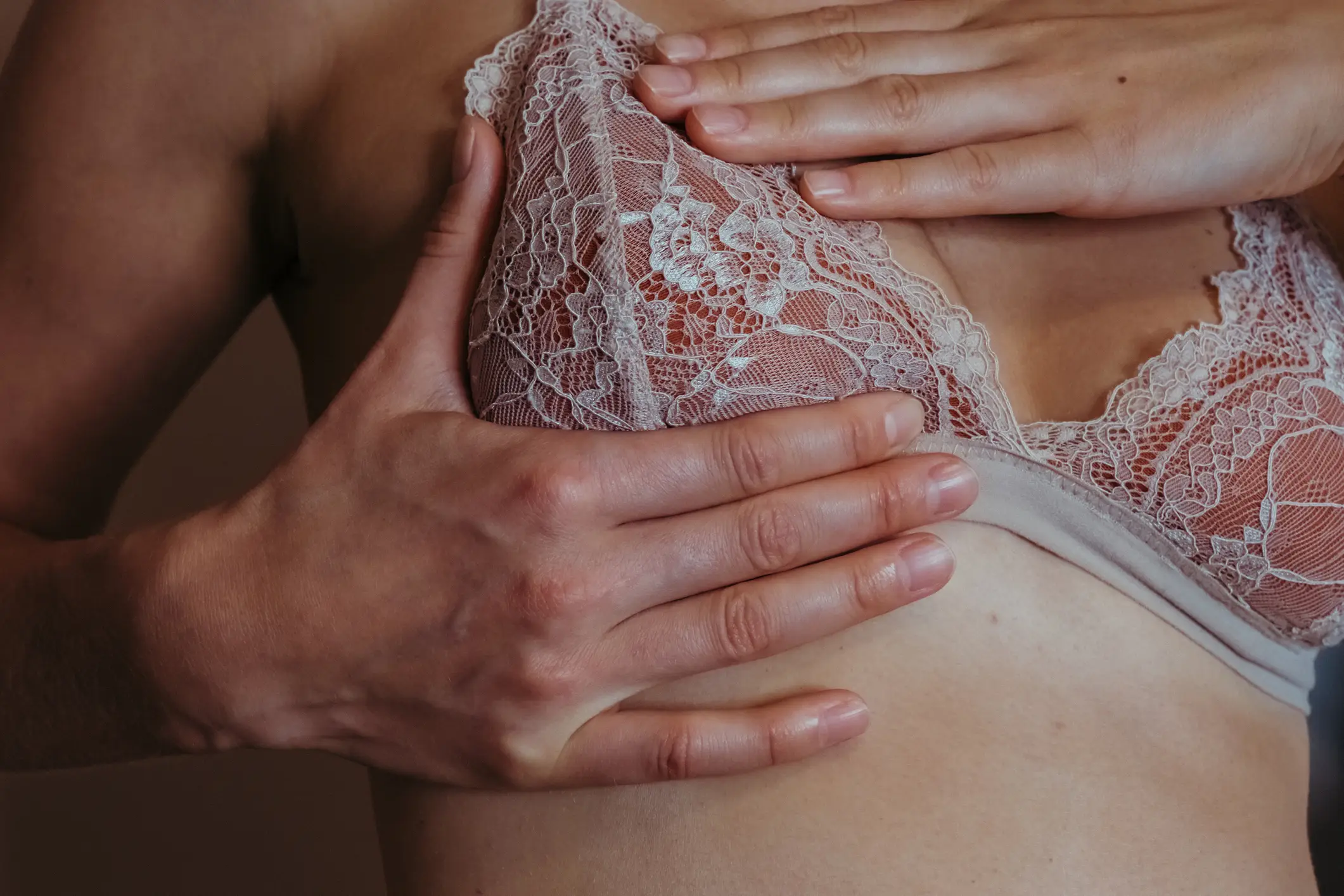
Should I be concerned about itchy breasts?
Dr Woodman explains that, like any other area of your body, your breasts can feel itchy from time to time.
"It’s rare for itchy breasts to be a symptom of breast cancer," he says, "but if you have a patch of skin on or around your breasts that you find yourself regularly scratching, it’s always worth getting it checked by a health professional."
Can itchy breasts ever be a symptom of breast cancer?
While it's rare for itching around your breasts to be a sign of cancer, it’s not impossible.
One type of rare breast cancer, called inflammatory breast cancer, can cause changes to the skin on your breasts, the doctor notes, adding that this can lead to itching, redness, inflammation, pain and swelling.
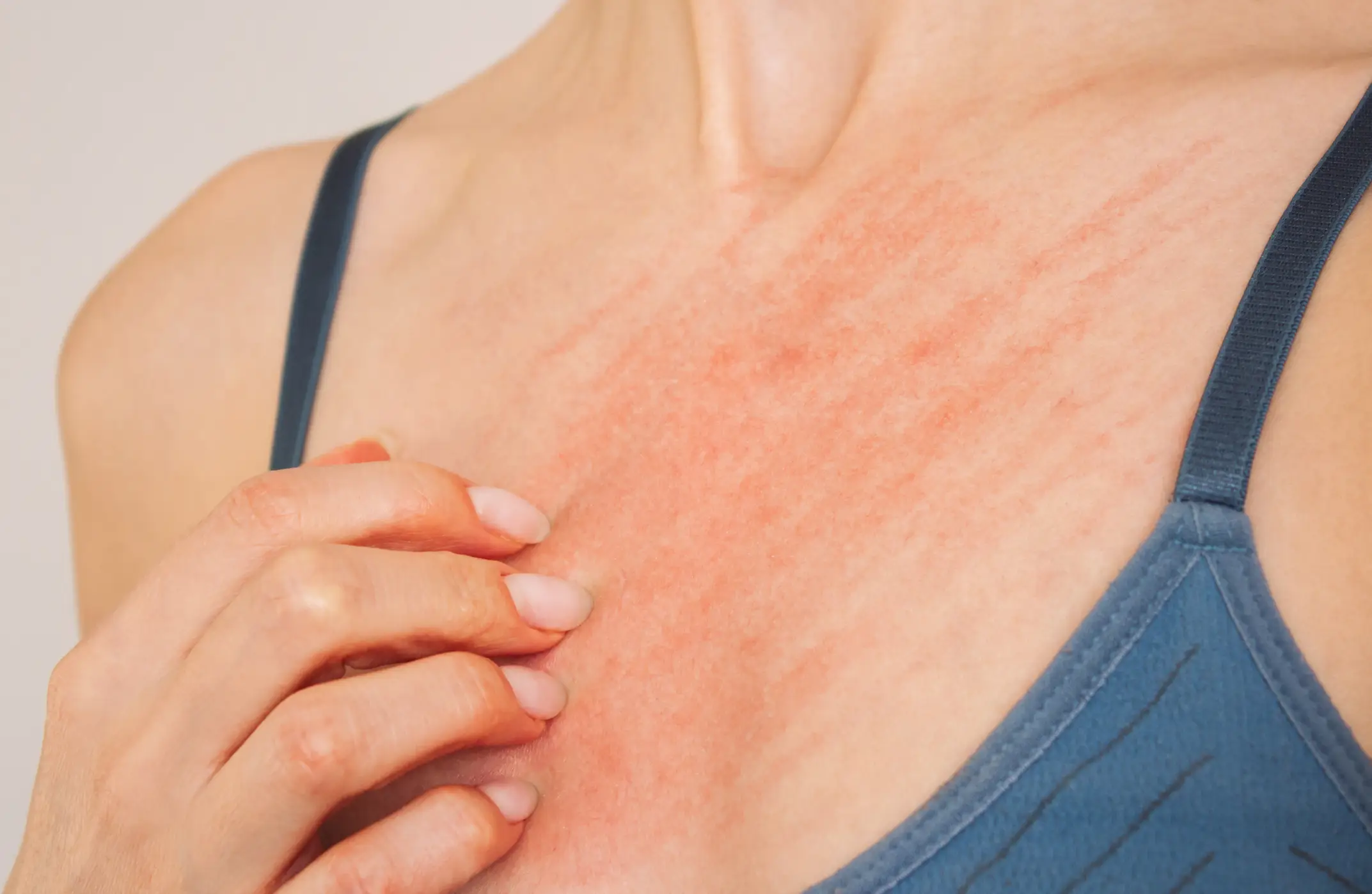
What about other health conditions?
Dr Woodman highlights that there's a rare skin condition, called Paget’s disease, that affects the nipple and areola.
"Sometimes, this can develop into cancer within the breast duct lining. However, it’s not always a cancerous condition, but it can lead to sore, itchy and bleeding nipples," he explains.
More regularly, itching can be caused by other conditions, like eczema. Other conditions, like mastitis, can cause inflammation in the breasts, leading to itching and discomfort.
The expert advised: "If you find that you regularly need to scratch the skin on or around your breasts, you should get it checked by a health professional, especially if it’s causing you discomfort or inconvenience."
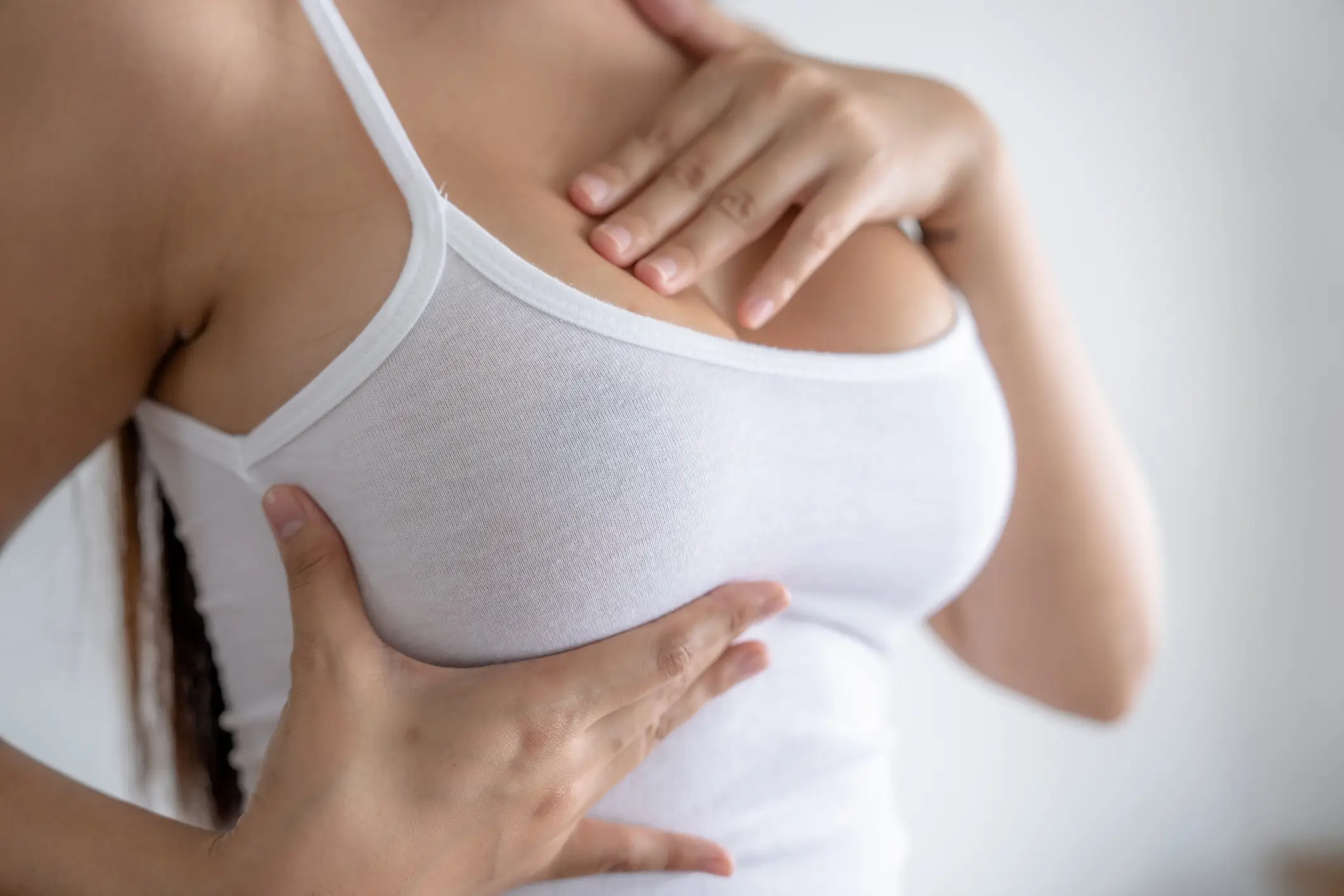
Common signs of breast cancer
Since the early 1990s, breast cancer incidence rates have increased by around a sixth (18%) in the UK, hence why it's so vital for us to know all the symptoms and signs of breast cancer to look out for.
Now, the most common symptom reported in breast cancer patients is a new lump or the skin thickening around the breast. These changes can occur both on the breast and in your armpits.
Dr Woodman adds that other things to look out for include:
- Pain or a lump in your armpit
- Redness, a rash, inflammation or crusting of the skin around one or both of your nipples
- A change in the appearance of the breast’s size or shape
- A change in your nipples – for example, inverting or becoming smaller
- The skin around your breast changing, for example, the texture changing
- Discharge coming from either nipple
- Bleeding from either nipple
Again, if you experience any of the above symptoms, it’s important to get yourself checked by a health professional.
While these symptoms don’t always necessarily mean breast cancer, as some lumps can be benign too (meaning non-cancerous), you won’t know that for sure until you get yourself checked - always good to be on the safe side, we say!
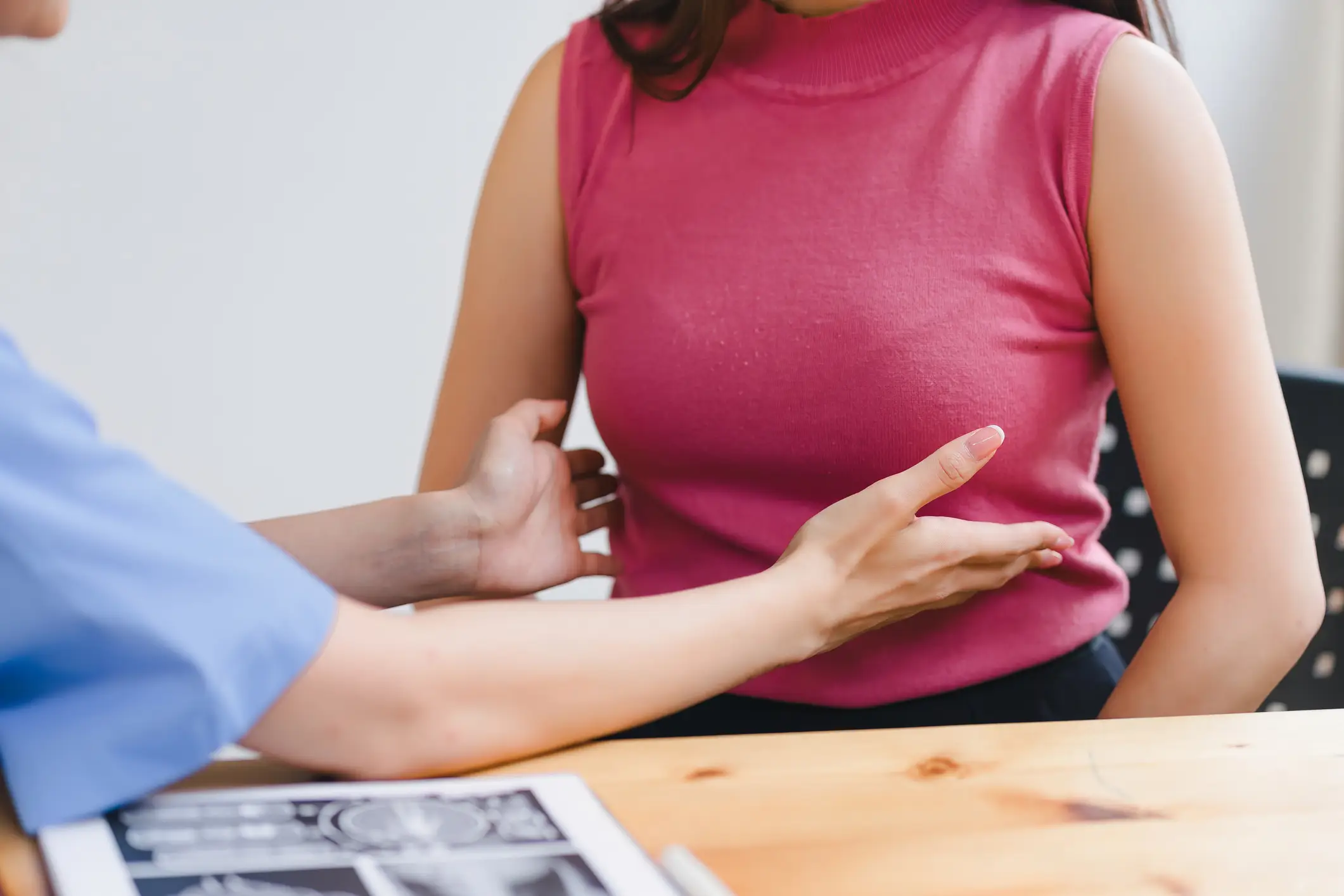
Are there any ways to help reduce my risk of breast cancer?
Dr Woodman says that 'around a quarter' of the UK’s breast cancer cases could be prevented through lifestyle changes.
He mapped out five ways to help you stay healthy:
- Maintain a healthy weight. Studies show that keeping within the recommended weight bracket for your height can help reduce your chance of developing 13 different cancers, including breast cancer. Do this by eating a well-portioned and balanced diet, and making time for at least 150 minutes of exercise each week.
- Exercise often. Along with helping you stay a healthy weight, physical activity is great at helping to reduce your stress hormones and general inflammation within your body.
- Don’t drink too much. Alcohol consumption and breast cancer cases are linked, so make sure you’re not overdoing it and having plenty of alcohol-free days.
- Stop smoking. There is some evidence that shows smoking can cause breast cancer. We need more research to be sure of this, but there are plenty of health benefits associated with not smoking – it’s always a good idea to stop.
- Check your breasts regularly. It’s important to get to know what’s normal for your breasts so you can spot changes more easily.
Topics: Health, Advice, Women's Health, Life, Cancer, Explained, Tyla Exclusive, NHS